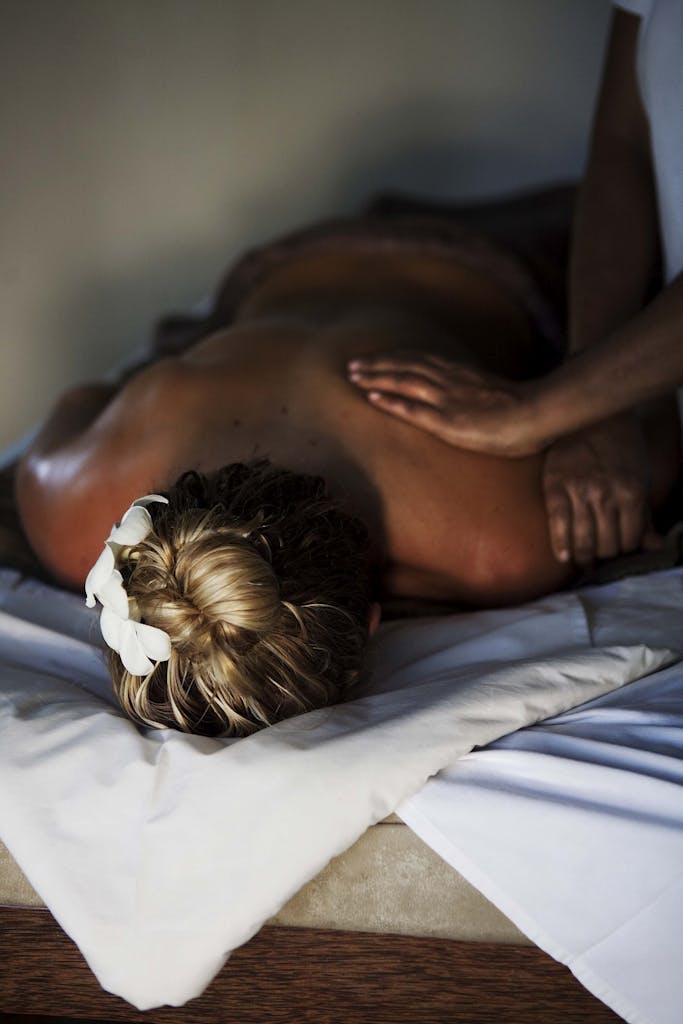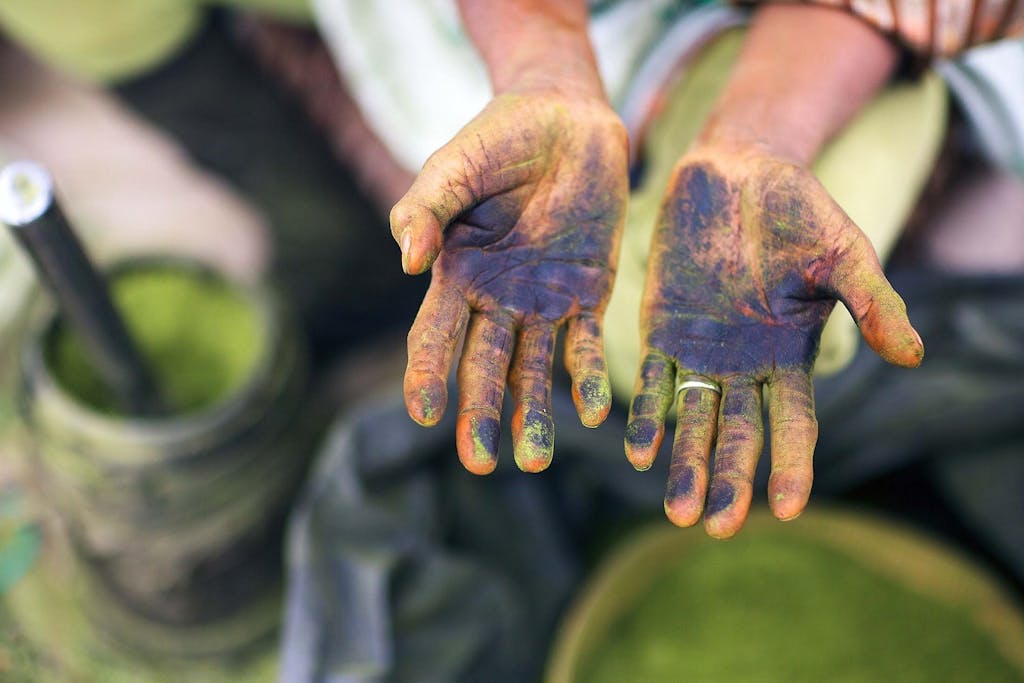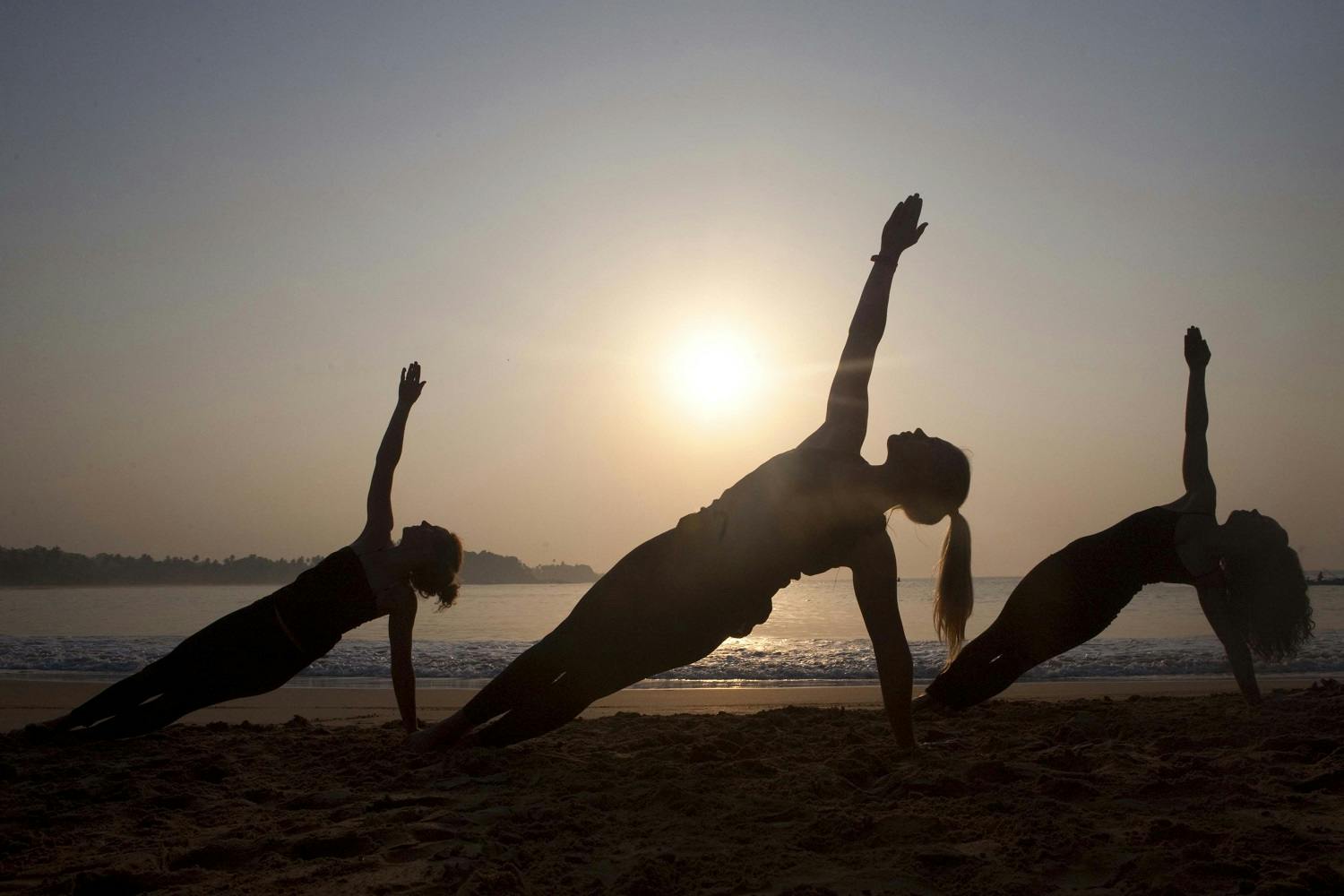Heads, Hearts and Hands: Experiencing Ayurveda in Sri Lanka
The nurse cupped my face with her hands, applying warm oil along my jawline, tracing the contours of my soul. She worked the oil into my scalp and hair, and administered cleansing eye drops that stung with clarity. She proceeded with marma balancing, stimulating a series of key energy points around my eyes and forehead. Another nurse must have entered the room silently. I became aware of four hands in synchronized rhythm, massaging more oil into my torso, arms, and legs, matching the throaty trill of the koel birds just outside. Hot garlic sliced the air, as the therapists patted the soles of my feet, ankles, and shins with a pungent poultice. Time stopped, life receding, as I surrendered to the full sensory experience under their care.
This was my first day at a Sri Lankan Ayurvedic resort, and we had only just begun.
A country in the process of its own healing, Sri Lanka seemed a fitting place for my personal journey of recovery. I gave myself over to the island’s warmth and to Ayurvedic wisdom, passed down through centuries in the heads, hearts, and hands of Sri Lankan practitioners.

Ayurveda in Sri Lankan Culture
Derived from ancient yogic texts and millennia of real-world observations, Ayurveda has been practiced continuously for over 5,000 years in South Asia. Ayurveda derives its potency from the observation of universal elements—ether, air, fire, water, earth—and seeks to balance those elements for optimal health. At its heart, Ayurveda in Sri Lanka achieves this balance with simple rules: like attracts like, whereas opposites balance. Its holistic approach, plant-based medicines, and integrated practices have drawn new audiences to Ayurveda from Australia, Europe, and North America.
Balance is perhaps the most important concept. To explain, Damitha Prameeth, an Ayurvedic Practitioner in Galle, Sri Lanka, holds up his right hand, fingers spread wide. “This hand,” he says, “is your prakriti; your perfectly balanced state.” He then moves his left hand behind the first, with the fingers offset and visible. “This other hand,” he continues, “might be how you feel today—just a bit off.” Rotating his left hand so that his index finger now meets the ring finger, Prameeth notes that Ayurveda seeks to address minor issues before they turn into more serious medical problems, illustrated here by the complete misalignment of his two hands. Ayurveda, he says, “brings us back to balance.” His hands match up once again, right fingertips touching left fingertips.
I asked him how he knows a person’s prakriti, or ideal state. “We know,” he said. “Your ideal state cannot hide, because we see it in your eyes and through the texture of your skin; we know it from the tone and speed of your voice; we hear it in the pulse of your heart and your other organs.” Through a brief initial conversation, my own doctor was able to identify both my prakriti and the current misalignments (vikruti) that were preventing me from living a balanced life. Some were physical, some were mental, but all would be addressed during my two weeks on-site.

Ancient Medicine or Modern Spa?
With all this talk of doctors, the experience might sound more like a hospital than a spa. But Ayurveda in Sri Lanka sits somewhere between the two: Neither austere hospitals devoid of personal choice, nor order-whatever-you-like spas, modern Ayurvedic resorts combine solid medical practice with luxurious trappings. They might include spacious rooms, a seawater swimming pool, plush recliners in the shade of coconut trees, and long expanses of beach for walking at sundown or bobbing in the waves of the Indian Ocean.
Unlike a spa, however, visitors do not order the treatments they want; doctors “prescribe” these to help restore balance. Hoping for a steam bath? Not if steam will inflame your pitta even further. Wanting a mango facial mask? Not if aloe is better suited to your constitution.
At its core, Sri Lankan Ayurveda is consistent with that practiced in India. There are subtle differences, however, making mine a distinctly Sri Lankan experience. Dhanvantari, the Hindu god of Ayurveda, shares his space with images of Buddhism. Variations on coconut curries fill the lunch buffet table, fragrant with local cinnamon, turmeric, and clove. And within the boundaries of doctors’ prescriptions is an emphasis on personal choice: will you choose yoga in the morning, or a sunrise walk on the beach? Dine alone, or join a table of new friends? Gotokola herbal tea, or Ceylon black? The lush surroundings and the element of personal choice distinguish these resorts from hospitals. But the care and treatments are the same.

Special Herbs, Just for You
Returning to balance, Sri Lankan style, meant a morning routine of yoga, acupuncture, oil treatments and a steam bath, followed by a herbal wrap, which comprised pastes made of fruits and herbs slathered on troublesome body parts: something sweet-smelling and gritty on my stiff shoulder, something unctuous on the small of my back, what seemed like warm fruit on my midriff and thighs, and a sticky-smooth puree on the soles of my feet. Crushed papaya covered my face, and cucumber slices cooled my eyes. After a pumice concoction in a hot shower to remove those herbal pastes, the morning concluded in a bathtub with another practitioner pouring choreographed waterfalls of warm herb-infused water over me. Afternoons were for walking on the beach, reading in the shade and tai chi by the pool.

As indulgent as this sounds, it is medicine. Practitioners prescribe every herb, every oil, every paste, every tincture, every pill, every activity to support an individual’s immunity and to mitigate imbalances. Curious about my daily teas and tinctures, I asked the pharmacist what was in the bittersweet liquid I was required to drink each morning. Gayani’s response: “Herbs.” What kind of herbs? Her answer: “Special herbs, just for you.” I must have looked skeptical, so she showed me a clay pot with my room number on it. Peering in, I saw 8 different herbs simmering down into a decoction I would be served later that afternoon. Indeed, every one was special, made individually for each of us every day. The result was a bespoke experience, calibrated precisely to address my current state of being.
One of the most powerful Ayurvedic medicines is oil, which we ingest through our skin during those hours-long morning treatments. In Sanskrit, the word for oil is sneha, which also happens to be one of the words for “love.” To check in to a Sri Lankan Ayurvedic resort is to be cared for deeply over time, to entrust yourself to others who will tend to your body, your heart, your mind, and your spirit. It may be oil, but it feels like love.
